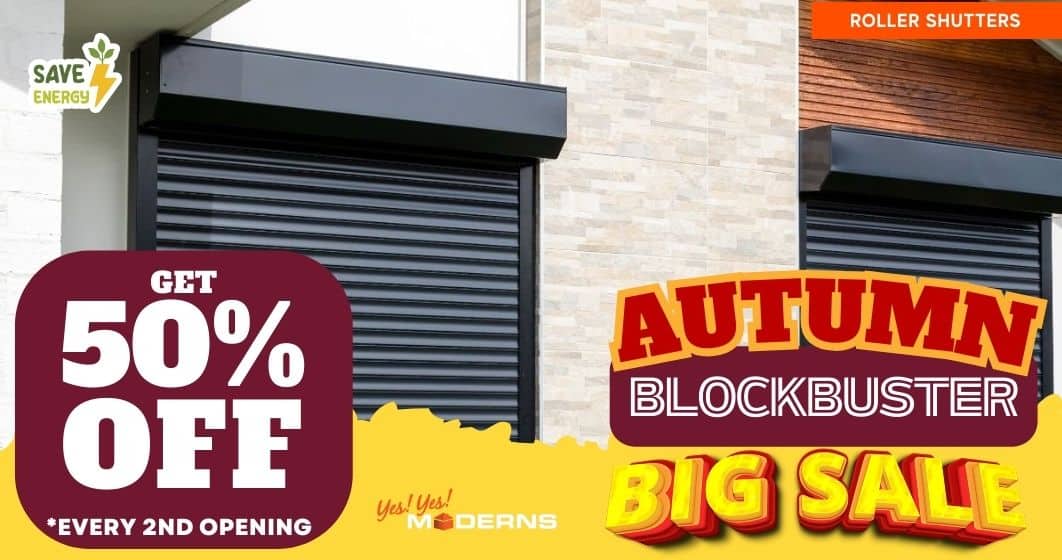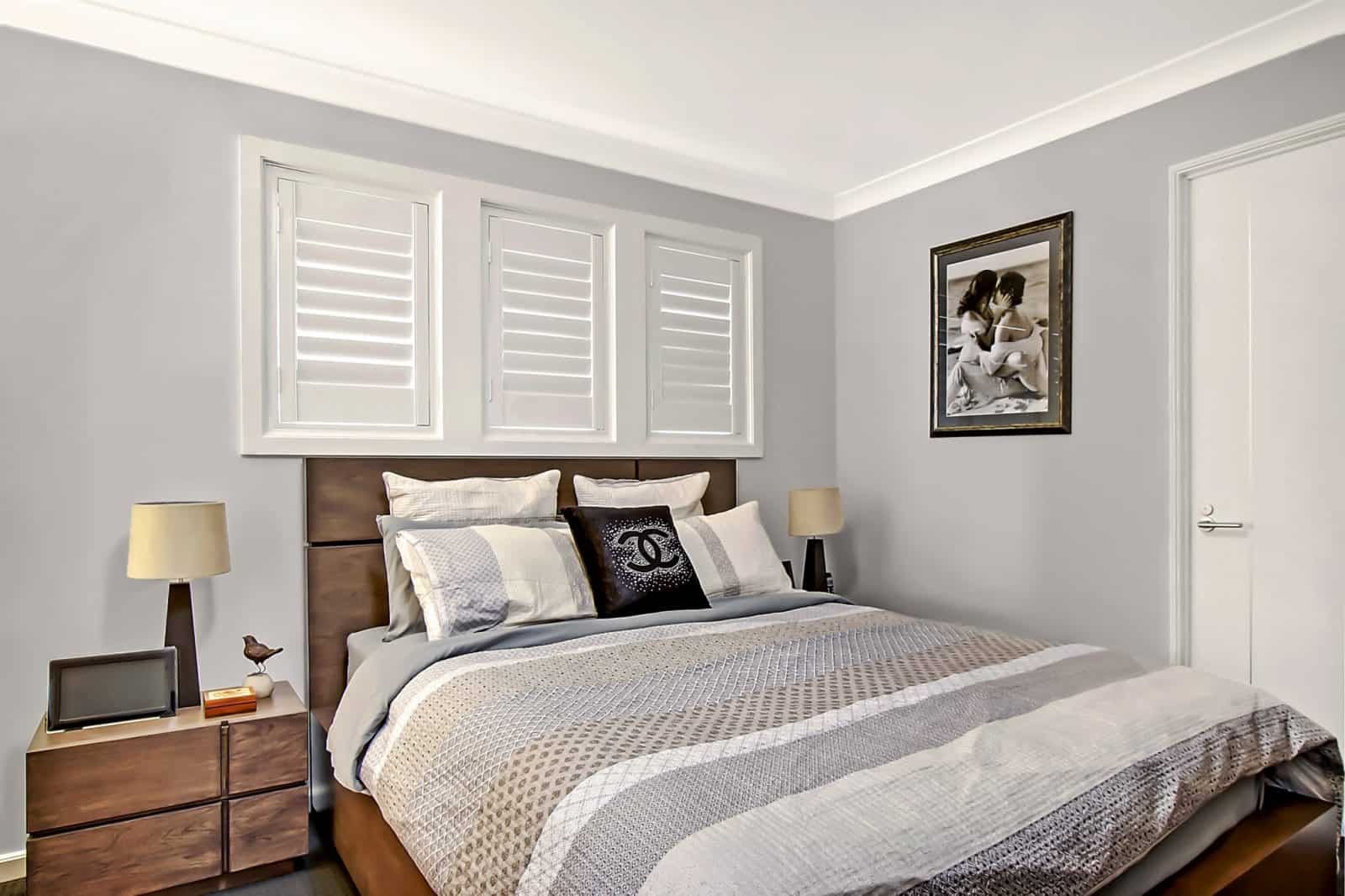Plantation Shutters: Wood vs. Plastic vs. Insulite
What are Plantation Shutters
Plantation shutters were originally designed for stately homes in the southern states of America, where winters are mild, but summers are extremely hot and humid. Traditional window furnishings, like curtains, became far too stifling in the subtropical climate, and so the plantation-style shutter was developed.
With signature wide slats, plantation shutters allow for more airflow. The permanence as wall fixtures also removes any need to swap in seasonal window covers. Overall, the simplicity of the design is not only timeless; it goes with any style of interior, from contemporary to industrial.
The Benefits of Installing Plantation Shutters
Plantation shutters aren’t just universally charming. They have a lot of other attractive selling points that go far beyond being stylish.
Insulating and environmentally friendly
The shutters were initially designed to keep the sun’s harsh rays and subtropical heat out of colonial-era American homes. Plantation shutters, with their large slats, allow for greater airflow when they are open, but when they are closed, are excellent insulators and can help homeowners save money on heating and cooling expenses by helping to regulate the interior temperature of the house. Many shutters are also made from non-toxic and recyclable materials that help you reduce your carbon footprint.
Durable and low-maintenance
Plantation shutters are built to last and become permanent fixtures on windows. Many are made with wood, PvC (plastic) or Insulite and are meant to stand the test of time. The shutters wide slats and simple materials also make cleaning a breeze. A quick dust or a wipe-down with a damp cloth is often all that is needed to keep the shutters looking fresh and new over time.
Style
The simple design of plantation shutters remains timeless. Plantation shutters are sleek and unassuming. They don’t fight for attention with other design elements and are rather neutral in appearance. Plantation shutters can fuse easily with modern, industrial, vintage, or shabby chic designs. They also remove the need to constantly update your window furnishings. A plantation shutter doesn’t need constant re-modeling or re-styling, saving you time and money during renovations, room updates, or seasonal interior design changes.
Increases your home value
Since most window coverings are temporary and easily removable, they don’t end up adding any value to your home. Plantation shutters, however, are permanent fixtures. The shutters are created specifically to fit your windows and improve the overall design of your home. They add curb appeal as well as energy savings that can boost the resale value of your home when you’re ready to sell.
Improves lighting
Plantation shutters offer an efficient way to shield your rooms from direct sunlight. You can control the amount of light you let in by adjusting the angle of the slats. This makes it easier to protect indoor possessions and furniture from the damage of extreme sun exposure over time.
Cost
The cost of your plantation shutters will vary.Three main factors usually determine the pricing: :
- The material of the shutters. Plantation shutters can be made out of different types of wood, including basswood and poplar. However, they can also be constructed of plastic (such as PvC) of varying qualities, or Insulite, a premium dense polymer that looks and feels like real timber.
- The size and amount of windows. The amount of windows, as well as their size, will affect pricing as well. Plantation shutters are all typically customised to the size of the window and made to fit perfectly, so the size and quantity will determine how many materials and hours are needed to complete the job.
- The quality of shutters. While PvC and plastic shutters are less expensive, wood shutters can get costly fast. Alternatively, insulite gives the impression of real wood while not costing quite so much.
Plantation Shutter Types
Different types of plantation windows have a variety of pros and cons. They also may require different maintenance techniques. Each has their specific look and feel that should be considered. Once again, the least expensive isn’t necessarily the best. Plantation shutters are meant to stand the test of time – if you invest in quality at the outset.
Here’s a breakdown of what to expect from the three main types of plantation shutter materials:
Wood
The Benefits
- Naturally beautiful. There’s something about natural wood and its grain that makes for a beautiful plantation shutter.
- Countless colour variations. Wood shutters offer unlimited colour variations to match any interior. Many clients choose to paint their shutters to match their interior trim to help them fit seamlessly with the existing decor.
- The option to use a stain. If you prefer to stain your shutter, rather than painting them, to help bring out the natural beauty of the material, you can do so with wood. Stains can also be matched to your home’s trim, cabinets, or furniture.
- Strong and lightweight. Wood is stronger than poly, yet it weighs less. It’s extremely durable and allows for larger panel sizes – whereas plastic can sag under its weight if the panel size is made too large.

The Downsides
- It’s expensive. Wood is typically more expensive than plastic options. It is by and large a more expensive option, and if you have large windows or many windows in general, you are looking at a bigger price tag.
- May need occasional repainting. Like any other painted surface in your home, the painted finish will age over time. Expect to have to repaint or restain your shutters every 10-15 years.
- Wood doesn’t like moisture. Under severely moist conditions or high humidity, wood can warp over time.
- It’s inconsistent. Due to the natural gradations in the wood, you may get an inconsistent colour application or quality.
- Not as safe or environmentally friendly. There are issues surrounding illegal logging when it comes to sourcing the wood used in wooden plantation shutters. Wood also isn’t great for insulation and poses a fire hazard.
Cost
In terms of price, wood is far and above more expensive than either plastic and Insulite. What’s more, due to the fact that wood needs to be repainted or restained over its lifetime, there’s an added cost of maintaining the wood itself.
Maintenance
The shutters may need a fresh stain or coat of paint every ten years or so. To keep your shutters well maintained ensure they are free from dust. Wipe them over with mild detergent and water to help keep them clean and looking their best. Wood is prone to warp due to the effects of moisture, so be sure to watch for signs of excess water near the shutters that can affect the wood over time.
Plastic
The Benefits
- Durability. Plastic is very tough and durable. It will hold its colour for the lifetime of the product, and never needs to be repainted or refinished.
- Less expensive. Plastic is often less costly than wood. If you are on a budget, you may want to look at plastic options.
- Impervious to moisture. Some areas are more prone to moisture. Plastic is a smart choice if you are concerned about moisture or humidity, as it will not warp in the way wood can under similar conditions.
The Downsides
- It’s heavy. Plastics have a considerable amount of weight in comparison to wood. The weight can put pressure on frames and hinges, and, if the window is extremely large, may lead to sagging of the panels.
- Limited colours. Unlike wood, which can be stained or painted to any colour under the sun, plastics are pre-manufactured in specific shades, leaving you with a set palette to choose from. Typically, plastic shutters are white or off-white. While these are acceptable in most situations, homeowners that want to perfectly match the colour of their shutters to their trim or other furniture will find these options difficult to work with.
- Limited panel sizes. Once again, because of the weight of the plastic itself, a plastic shutter’s maximum size will be much smaller than a wood shutter. This means you may need more shutter panels to cover a window opening if you decide to go with plastic.
Cost
Plastic is the least costly option when it comes to installing plantation shutters. However, not all plastics are made equal, and quality can vary widely. If the price is too good to be true, it probably means your shutters are not likely to stand the test of time.
Maintenance
Any mild detergent will easily clean your plastic plantation shutters. Simply wipe them down with a damp cloth to keep them looking their best.
Insulite
The Benefits
- Has the look of wood. Insulite plantation shutters are constructed of dense polymer foam. This foam looks and feels like wood. The difference? Better quality.
- Affordable. While your plantation shutter will look like real wood, they won’t come with the hefty price tag of wood.
- Fire Resistant. Insulite needs 3 times the amount of heat to ignite compared to wood or plastic.
- Suitable for inside and outside. Insulite isn’t just for interiors. The dense polymer is safe for all environments – even exterior surfaces – meaning it’s water-resistant and won’t warp in heat or humidity.
- Made with 100% fully recyclable material. Choosing Insulite means you are lowering your carbon footprint. The shutters are 100% recyclable and made of environmentally friendly non-toxic materials.
The Downsides
- They look like wood…but they’re not. Some people prefer the slight variations you can only get from natural materials like wood. Although Insulite looks like wood, it’s not quite the same.
- The cost is still high. While not as expensive as wood, Insulite is still more costly than plastic alternatives, especially if those alternatives are low-quality.
- Limited colour options. Much like plastic and PvC, your options for Insulite colours are simply white and off-white. Luckily, these classic colours will go with any interior design imaginable.
Cost
Insulite is a good middle ground between wood and plastic. Due to its longevity and its environmental friendliness, the investment holds its own over time. The up-front costs aren’t as high as wood, and you are getting a more quality product than you would with even the highest quality plastic option.
Maintenance
Insulite shutters have some of the longest shelf life in the industry, meaning your shutters are built to last.
Insulite is very easy to clean. A simple wipe down with a damp cloth or a quick wash with a mild detergent will keep your shutters looking like new.
Insulite Plantation Shutter Locations
Insulite plantation shutters are perfect for all locations around Australia. Their ability to withstand all Australian climates makes them perfect for cooler climates like Victoria and Tasmania while also withstanding hotter more tropical climates like Queensland.
Insulite Planation Shutters are available in:
NSW: Sydney, Newcastle and Central Coast
VIC: Melbourne
TAS:Tasmania
QLD: Brisbane
SA: Adelaide
WA: Perth
Download our guide to learn more Or Contact the team at Modern to find out about our unique Insulite plantation shutters.


